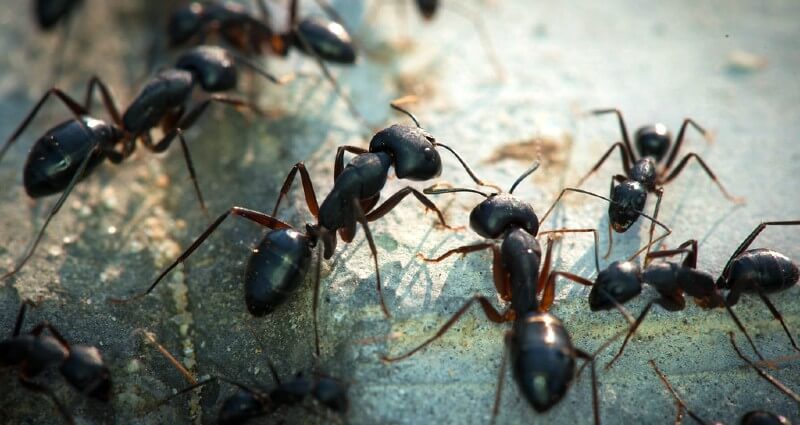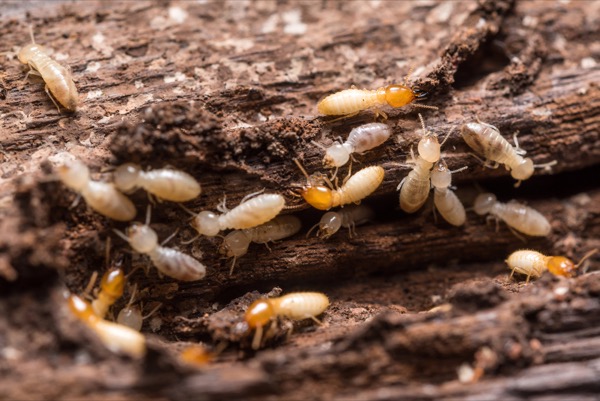Comprehensive Termite Control: Safeguard Your Property with Specialist Services
Wiki Article
Environmental Impact of Parasite Control: Balancing Effectiveness With Sustainability
The ecological effect of parasite control is an important problem that requires a fragile equilibrium between achieving performance in making sure and taking care of pests sustainability of our environments. As we aim to protect our crops, homes, and wellness from the risks presented by bugs, the methods we employ can unintentionally harm the atmosphere. From making use of unsafe chemicals that permeate into our soil and water to the unplanned effects on non-target types, the consequences of standard parasite control practices are far-ranging. Nonetheless, there are arising techniques that use expect a much more sustainable approach to pest administration. These options not only goal to address the immediate insect problems but also consider the long-lasting health and wellness of our world.Damaging Chemicals in Insect Control
The utilization of dangerous chemicals in pest control poses considerable environmental and health and wellness dangers that warrant careful consideration and reduction methods. Insecticides, herbicides, and pesticides are typically utilized to eradicate insects, yet their widespread application can cause unplanned consequences. These chemicals can pollute dirt, water resources, and the air, influencing not just the targeted pests however also beneficial bugs, wild animals, and human beings.
To resolve these threats, integrated bug monitoring (IPM) strategies are being promoted as an extra sustainable choice. IPM entails a combination of methods such as biological control, environment control, and the targeted usage of chemicals as a last resort (ant control concord nc). By embracing a holistic approach to pest control, we can minimize the environmental and health and wellness effects related to dangerous chemicals while efficiently taking care of pest populations
Effect On Non-Target Types
Considering the unintended effects of pest control methods, the effect on non-target types is an essential aspect that needs extensive evaluation. While parasite control procedures intend to target details parasites, other microorganisms in the ecosystem might be inadvertently influenced. Non-target species, consisting of valuable insects, birds, animals, and also plants, can experience straight or indirect damage from pesticide applications or biological control methods.Pesticides can have lethal or sub-lethal effects on non-target types. For instance, pesticides made to fight a particular bug pest may damage pollinators like bees or all-natural predators such as ladybugs. Furthermore, chemical deposits can accumulate in the atmosphere, influencing non-target microorganisms in time. Biological control representatives, if not species-specific, can position dangers to unexpected targets, interfering with ant control cherryville nc the environmental equilibrium.
To minimize the effect on non-target species, integrated bug administration (IPM) approaches that stress an alternative method to pest control are advised. These techniques prioritize making use of eco-friendly methods, minimizing injury to beneficial organisms while efficiently managing pest populaces. Conducting thorough threat evaluations and checking the results of parasite control efforts are important action in guarding non-target species and advertising total ecosystem health and wellness.
Dirt and Water Contamination
Unexpected ecological effects of insect control methods expand beyond affecting non-target species, with substantial effects for soil and water contamination. Chemicals, herbicides, and chemical fertilizers made use of in pest control can leach right into the dirt and infect groundwater, posturing a danger to both water and terrestrial ecological communities. Soil contamination can interfere with the equilibrium of microbes essential for nutrient biking and plant development, leading to decreased soil fertility and productivity. Moreover, these chemicals can continue the setting for extended durations, gathering in the soil and possibly getting in the food cycle.Water contamination is one more vital issue associated with bug control techniques. Runoff from agricultural areas treated with chemicals can bring these chemicals into close-by water bodies, affecting marine microorganisms and water high quality. Impurities in water resources can have significant repercussions, affecting not only marine life but likewise human wellness via the consumption of infected water or water organisms. To reduce soil and water contamination from insect control tasks, integrated insect administration methods that focus on sustainability and lessen chemical inputs are essential.
Air Pollution From Chemical Usage
Direct exposure to airborne pesticides throughout farming applications presents a significant worry for air pollution control steps. In addition, pesticide drift, where pesticides are lugged by the wind to unintended locations, can lead to the contamination of neighboring communities and water bodies.
Strategies for Sustainable Bug Control
In the realm of agricultural practices, applying lasting pest control techniques is vital for preserving eco-friendly equilibrium and safeguarding crop yields. Sustainable pest control emphasizes the use of eco-friendly techniques to take care of parasite populations successfully while decreasing harm to non-target organisms and communities. Integrated Pest Monitoring (IPM) is a widely adopted strategy that incorporates organic, social, physical, and chemical control techniques to accomplish long-lasting insect management remedies.Plant rotation and diversity are likewise reliable methods to disrupt pest life cycles and develop less positive problems for insects to grow. Eventually, by incorporating these lasting insect control approaches, farmers can achieve a balance between pest management effectiveness and environmental stewardship.
Conclusion
Finally, the environmental influence of pest control techniques have to be very carefully taken into consideration to stabilize effectiveness with sustainability. Unsafe chemicals used in pest control can cause dirt and water contamination, air contamination, and harm non-target species - termite control. It is critical to carry out sustainable parasite control approaches to decrease these unfavorable impacts on the atmosphere and advertise a much healthier environment for future generationsBy embracing an all natural method to pest control, we can lessen the ecological and wellness impacts associated with harmful chemicals while successfully handling pest populaces.

To minimize the air pollution created by pesticide usage, it is important to take on integrated pest monitoring strategies that prioritize the use of non-chemical insect control methods, such as crop rotation, natural killers, and immune crop selections. Sustainable parasite control emphasizes the use of eco friendly methods to handle bug populations effectively while lessening damage to non-target microorganisms and ecological communities. Integrated Insect Administration (IPM) is an extensively embraced approach that combines biological, cultural, physical, and chemical control approaches to attain lasting insect monitoring remedies.
Report this wiki page